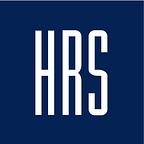The future of hospitality: how Gen Z´s see it
Hospitality has always been about building a relationship with guests; however, we must accept the fact that face-to-face contact is gradually disappearing. The pandemic has had some influence on this change, but this is predominantly due to the availability of online services, through which even a visit to a government office can be booked. Within this environment, a generation of buzzers is growing up and developing habits that will significantly change the industry over the next decade.
Quiet Guests and Innovative Managers
My students at the University of International Business (UIB) in Kazakhstan are a generation that will change our world, and they will change it for the better. In comparison to the older generations, they are kind young people who have no reason to hang on to stale principles. They respect themselves, their choices, their environment, and they are not afraid to stand up for themselves.
So as guests, I think they will be relaxed. Time is precious to them, but if a taxi arrives ten minutes late, they will be reluctant to show their displeasure or pay much attention to minor service issues.
As future managers, they are focused on finding solutions to every issue. Unlike the more conservative millennials, they are not afraid of change; on the contrary, they seek constant change. They will fine-tune all mechanisms in the business, constantly adjusting and commenting. It will also be these managers who get rid of paper-based media and be totally satisfied with online reporting.
The power of apps and kiosks
We have a client in Kazakhstan, a large fast-food restaurant chain. HRS did everything for them, kiosks, e-queue, car order service, etc, and my students studied the whole process with great interest. Over 90% of them commented that they would prefer to use the kiosk rather than approach the cashier when going to a fast-food restaurant. Gen Z’s reason for making this choice is that the cashier may be in a bad mood, or they themselves were having a bad day. An electronic queue gave them a sense of control because there was no need to ask about their order, it was all displayed on the electronic display.
As customers, they understood that they came to a fast-food restaurant to eat. They were comfortable with ordering and collecting their order without physical contact, or distracted from what they were doing with their friends. In other words, if live interaction can be avoided, the Zoomers are happy to do so.
Not on the web, then it does not exist
Zoomers get all their information from websites or from social media, mostly Instagram. When I set students the task of finding out how many sanatoriums there are in the north of Kazakhstan, the whole group will bring me the same five establishments. When I show them all the existing health resorts, the students will state that there is nothing about them on the internet. If a hotel or restaurant has no website or social media presence, then as far as the new generation is concerned, they don’t exist.
When zoomers are asked to find the price, or book a room, they will only use hotels that have an online booking option. They prefer to get the information at their own convenience from websites and social media; they want to book a table or room whenever they want, rather than wait for call centre opening hours.
As hotel guests, they can go to reception or call to book a spa service, but for them, it is better to have the option to do this via a mobile app. Zoomers like electronic confirmations, they like earning points in loyalty programmes, and they value interacting with systems not people.
The inevitable development
Some customers say that they do not see the need for websites or social media, but for the new generation, it is essential. Most zoomers will not be working in hospitality, but on a business trip, it will be important for them to find out about the hotel online.
Zoomers like the hotel sending them an email a week in advance of their visit, asking them to choose a room, informing them about events, and offering to make reservations in advance.
We have a Zenge app in Kazakhstan, which has been adapted to several hotels. Guests can book a table, make an immediate prepayment, and be assured that their chosen table will be ready and waiting for them when they arrive. My students confirm that they are happy to pay in advance if they have control of the situation and avoid unnecessary quarrels at the restaurant.
It is also preferred by the restaurant. Because of the app, staff are confident that the guests will come as planned, but if they do not then they will have received payment.
I love the zoomers, I enjoy seeing their mindset and working with them. I admire them, they are not afraid to speak their mind or defend their position. I want this new generation’s vision to be listened to. They bring in a lot of interesting and diverse things to the table that will improve and modernise hospitality as a whole.
Author: Rizvangulya Glaudinova
HRS Almaty Regional Manager
This article has been originally published on hotel.report on March 24, 2022.
